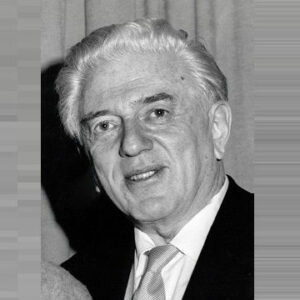Anatole Litvak was a film editor, screenwriter, actor, and director who worked in Russia. With his urban dramas, criminal thrillers, war documentaries, and film noirs, he created a name for himself in the film industry. He began his career in Leningrad, but following the Russian Revolution, when the state took over the theaters, he opted to leave the country. He relocated to Germany and made several films there, but he had to leave when Hitler took control and Jews were no longer allowed. Before the Second World War, he traveled to France and then to America, where he signed a deal to create films with an American film studio. He also worked as an editor and created scripts for a few films. During his cinematic career, he produced a lot of films. He gained a reputation as a filmmaker who could handle urban dramas. In the latter half of his career, he returned to Europe and created a series of glossy, turgid pictures, some of which were pretty good.
Childhood and Adolescence
Anatole Litvak was born on May 10, 1902, as Mikhail Anatol Litwak to Jewish parents in Kiev, Ukraine, Russia.
In 1915, he made his debut on the stage of a little-known Leningrad theater. He went to the ‘University of St Petersburg’ to study. In 1922, he enrolled in the ‘State Theater School,’ where he studied acting, but he quickly departed to pursue a career in the Russian cinema business.
Career of Anatole Litvak
In 1923, Anatole Litvak started working in the film industry at the Nordinko studios in Leningrad. When the Russian theaters were taken over by the state in 1925, he traveled to Germany seeking better possibilities. He directed his first romantic comedy, ‘Dolly Macht Karriere,’ in 1929, in Germany, after editing the film ‘The Joyless Street,’ which starred Greta Garbo.
In 1931, he directed ‘Nie Wieder Liebe,’ which was followed by ‘La Chanson d’une nuit,’ ‘Sleeping Car,’ and ‘Be Mine Tonight,’ all in 1933. When Hitler came to power in Germany, he had to flee to France, where he directed the film ‘Mayerling’ in 1935, starring Charles Boyer and Danielle Darrieux.
In 1936, he traveled to America and got a deal with ‘Warner Bros.’ in 1937. In 1937, he directed ‘The Woman I Love,’ a film starring Miriam Hopkins set against the backdrop of the First World War. In the same year, he created a second picture, ‘Tovarich,’ in which Claudette Colbert featured and Boyer portrayed two Russian lords.
In 1938, he directed the criminal thriller ‘The Amazing Dr. Clitterhouse,’ starring Edward G. Robinson as a doctor and Humphrey Bogart as a thief’s leader. Bette Davis played the unhappy wife of a reporter played by Errol Flynn and the sister of Anita Louise and Jane Bryan in his next picture, ‘The Sisters,’ released in 1939. In 1939, he released ‘Confessions of a Nazi Spy,’ which featured Robinson as an FBI agent investigating a Nazi network in America led by Paul Lukas.
He directed the film ‘Castle on the Hudson’ in 1940. The critics praised ‘City of Conquest,’ which starred James Cagney, Arthur Kennedy, and Ann Sheridan. The 1940 film ‘All This, and Heaven Too’ was based on a novel by Rachel Field about a governess played by Bette Davis who falls engaged with her boss and becomes a suspect in his wife’s death. In 1941, he tried his hand at a variety of genres with the films ‘Out of the Fog,’ about a Brooklyn waterfront mobster, and ‘Blues in the Night,’ about jazz musicians.
He left Warner Bros. in 1942 to join ’20th Century Fox,’ but was only able to create one picture, ‘This Above All,’ starring Tyrone Power and Joan Fontaine. After finishing the film, he joined the army’s ‘Special Service Division’ and collaborated with Frank Capra on a few war films, one of which being ‘The Battle of Russia’ in 1943. After the war, he directed the RKO film noir ‘The Long Night,’ starring Henry Fonda, which was a box office disappointment. The film noir he directed in 1948, ‘Sorry, Wrong Number,’ starring Burt Lancaster and Barbara Stanwyck, became a classic and was a box office triumph.
His 1948 picture ‘The Snake Pit,’ starring Olivia de Havilland and based on true events that occurred in a mental hospital, was hailed as a masterpiece of directing. In 1949, he returned to France and directed the thriller ‘Decision Before Dawn’ in 1951, which told the story of a WWII prisoner of war who volunteers to work as a spy for the US army against the Nazis. In 1951, he worked for ’20th Century Fox,’ and then again from 1955 until 1956. ‘Anatasia,’ shot entirely in Paris in 1956, and a love drama called ‘Goodbye Again,’ shot entirely in Paris in 1961, were two of his last pictures. In 1967, he directed Peter O’Toole in “The Night of the Generals,” a military drama.
Achievements & Awards
In 1940, his film ‘All This, and Heaven Too’ received a ‘Academy Award’ nomination for Best Picture. In 1943, he was nominated for an Academy Award for ‘Best Director’ for his war documentary ‘The Battle of Russia.’ In 1948, ‘Snake Pit’ received an Academy Award nomination for ‘Best Director’ and ‘Best Picture.’ For his contributions to film, he was honored with a star on the Hollywood Walk of Fame.
Personal History and Legacy
On September 4, 1937, he married actress Miriam Hopkins, whom he divorced on October 11, 1939. On December 2, 1955, he married Sophie Steur, a costume designer who worked on some of his films and remained with him until his death in 1974. Anatole Litvak died on December 15, 1974, in Neuilly-sur-Seine, France. Anatole Litvak was never content with just one shot of a scene, which led to him clashing with various performers on occasion.
Estimated Net Worth
The estimated net worth of Anatole Litvak is not available.


